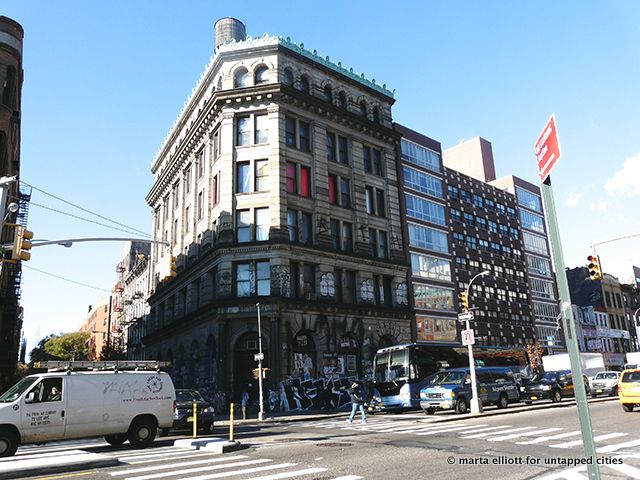Last Chance to Catch NYC's Holiday Notalgia Train
We met the voices of the NYC subway on our nostalgia ride this weekend!



On the northwest corner of Bowery and Spring stands one of our favorite holdout buildings. Seemingly resistant to the tide of development creeping up from the Lower East Side and Nolita, 190 Bowery was a popular spot for graffiti artists. The seemingly abandoned old bank on the northwest corner of Bowery and Spring has been going through some ownership changes, so we thought we’d take a look at the history behind it.
The owner, photographer Jay Maisel bought the building in 1966 for $102,000. Although the figures haven’t been publicized yet, let’s just say that RFR Realty paid quite a bit more for the six-story, 72-room, 35,000-square-foot retired bank and is reportedly putting it back on sale even before their September purchase is in the public records. In 2008, Germania Bank was estimated to be valued at around $50 million.
This Renaissance Revival building at 190 Bowery was built in 1899 and housed the Germania Bank. In the 19th century, the number of German immigrants in New York was so high that everything above Division Street along the Bowery was referred to as “Little Germany” (Kleindeutschland). This community established everything they would need from cultural and religious organizations, including banks like the Germania Bank. This community is also where the building’s architect, Robert Maynicke, grew up.
The building was then passed around different banks until the late ’60s, when it was bought by Maisel in 1966 under the name Archival, Inc. He rented the top floors to other artists, namely Adolph and Roy Lichtenstein. Maisel, his wife, and their daughter lived in the building without other tenants until earlier this year, making it one of the city’s largest single-family homes. This colossal building covered in graffiti, with boarded windows and entrances, has actually just been a huge home for Maisel’s family for the past 48 years.
In protest of the recent sale, street artist Hot Tea recently made his opinion known of the impending development: “UUGGHH” he installed onto the building.
Subscribe to our newsletter